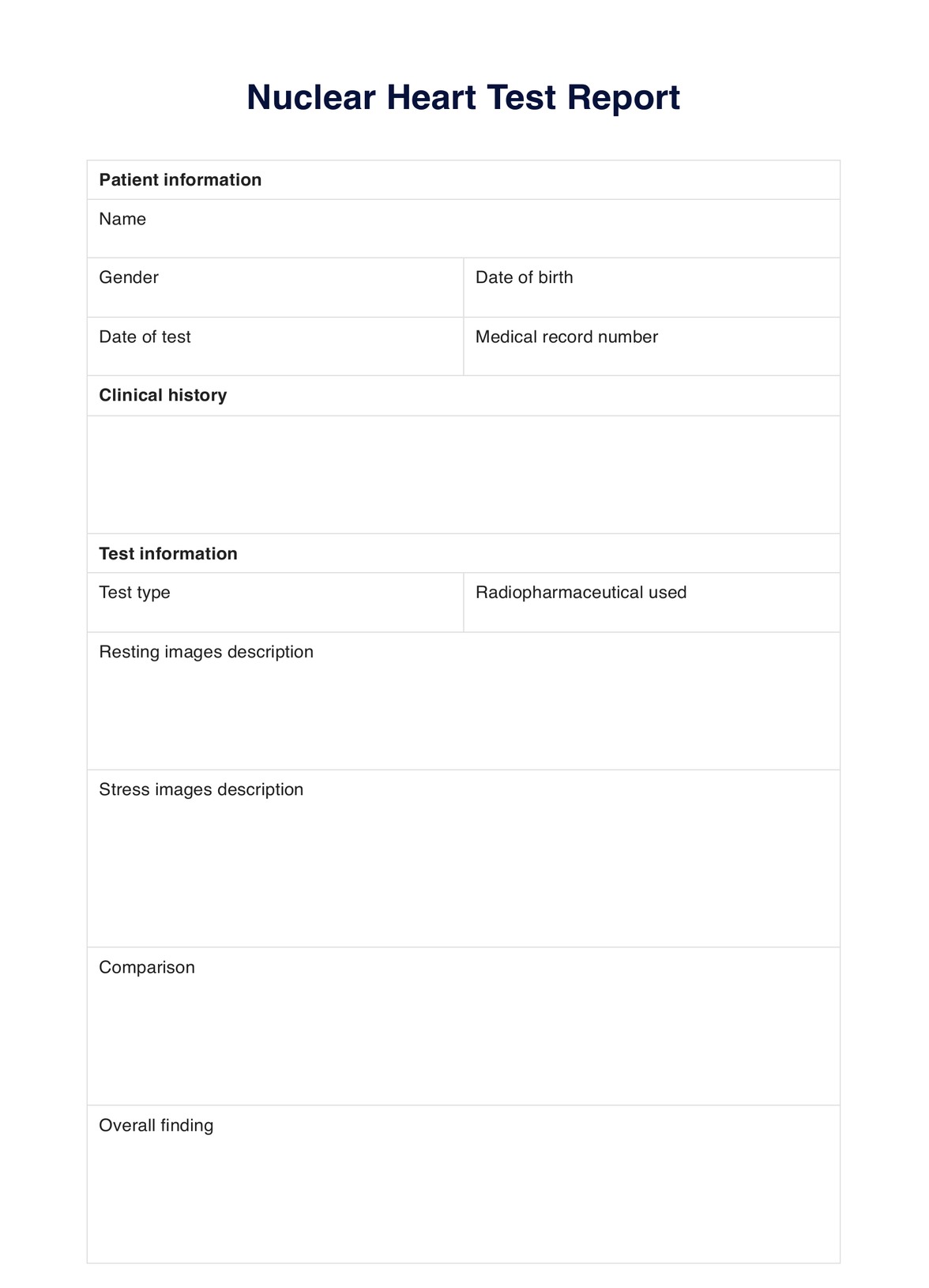Healthcare professionals, such as cardiologists or primary care physicians, may request a Nuclear Heart Test for their patients if they suspect heart disease or want to assess the overall health of the patient's heart.

Nuclear Heart
Get access to a free Nuclear Heart Test Report template. Document your patient results with a user-friendly PDF template.
Use Template
Nuclear Heart Template
Commonly asked questions
As with any medical procedure involving radiation exposure, there is a slight risk of developing cancer in the long term. However, the benefits of accurately diagnosing and managing heart disease often outweigh this small risk.
The length of a Nuclear Heart Test may vary, but on average, it takes about 4-6 hours to complete. This includes the time for preparation, imaging, and rest periods in between.
EHR and practice management software
Get started for free
*No credit card required
Free
$0/usd
Unlimited clients
Telehealth
1GB of storage
Client portal text
Automated billing and online payments











